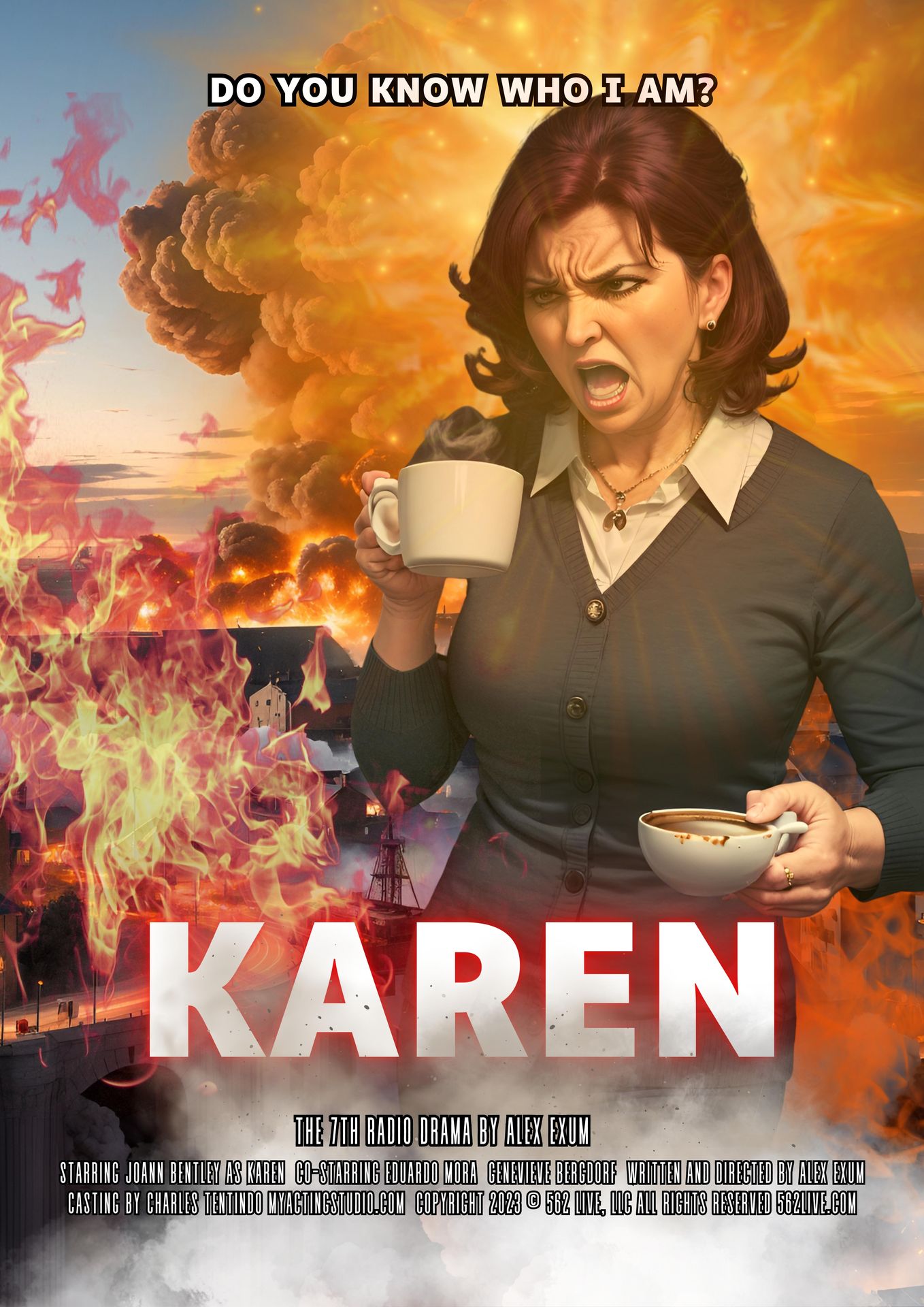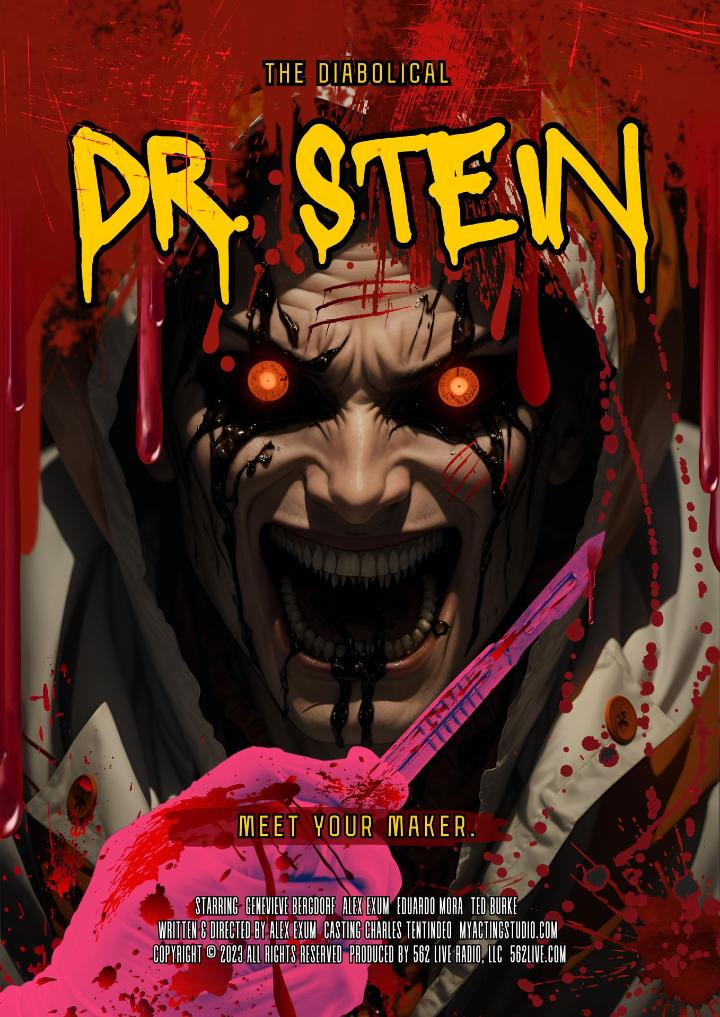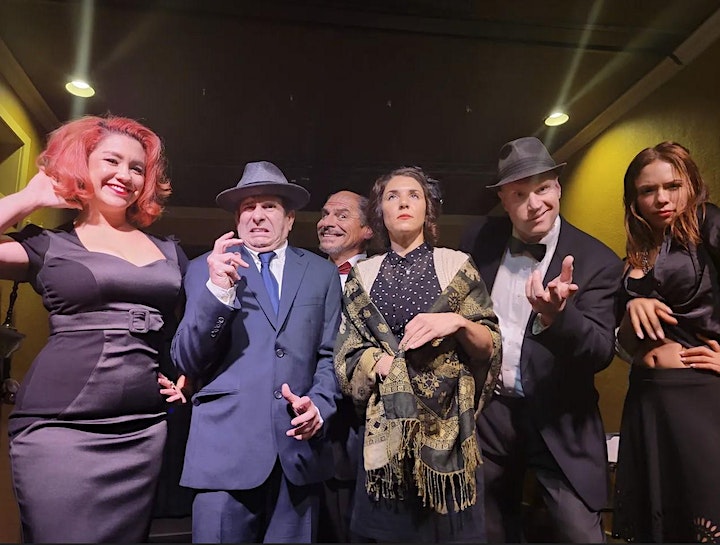In my last article on the topic, "Why We Should Preserve The Dying Art Of Radio Theater," I delved into the rich history and unique charm of radio theater, a medium that has enchanted audiences for generations. The outpouring of support and interest from that piece was truly heartening, and it's clear that this topic resonates with many. So, let's continue this journey in Part 2 of our exploration into the world of radio theater.
The Timeless Appeal of Radio Theater
Radio theater, despite its age, holds a timeless appeal. This medium relies on the power of sound and the listener’s imagination to create vivid, immersive worlds. It's an art form that invites active participation from its audience, a quality that modern entertainment forms often lack. The beauty of radio drama lies in its simplicity and its ability to paint detailed pictures in the minds of listeners, using nothing but sound.
Alex Exum's KAREN (2023) A Suburban Thriller for 'Haunted Radio' 2023
Modern Resurgence and Innovation
Recently, we're witnessing a resurgence in audio storytelling, thanks in part to the popularity of podcasts and audiobooks. This renaissance is not just about nostalgia; it's a testament to the enduring power of audio to tell stories in compelling ways. Today, with advancements in sound design and technology, the scope for creativity in radio theater is vast. We can blend traditional storytelling with innovative audio techniques, creating experiences that are both familiar and refreshingly new.
Educational and Cultural Significance
Radio theater also has immense educational and cultural value. It can be a tool for preserving languages, dialects, and oral traditions. In schools, radio plays can be used to enhance learning, especially in literature and history classes, by bringing texts and historical events to life. Moreover, radio drama can serve as a platform for underrepresented voices, offering a medium that is both accessible and powerful in its ability to reach diverse audiences.
Alex Exum's THE DIABOLICAL DR. STEIN (2022) A modern take on 'Frankenstein for 'Haunted Radio' 2023
Community Building and Accessibility
One of the most beautiful aspects of radio theater is its ability to build communities. It’s a medium that’s both accessible and inclusive. Radio dramas can be enjoyed regardless of age, background, or socioeconomic status, making them a unifying force. In a world where the digital divide is a real issue, radio remains a universally accessible form of media.
The Cast of Alex Exum's "Manor of Death" (2021) written and directed by Alex Exum
The Way Forward
As a writer, director, and producer, I believe our approach to preserving radio theater should be two-pronged: embracing tradition while innovating for the future. We must keep the essence of radio drama alive – its power to evoke imagery and emotion through sound – while adapting to the changing media landscape. This includes exploring new platforms, integrating modern storytelling techniques, and reaching out to new audiences.
In conclusion, the art of radio theater is not just a relic of the past; it's a living, evolving form of storytelling with immense potential. It's up to us – creators, listeners, and supporters – to keep this unique art form thriving. Let’s continue to champion this medium, ensuring that the magic of radio theater continues to captivate and inspire generations to come.

P.S. My original article, 'Part One' on Medium https://medium.com/@alexexum/why-we-should-preserve-the-dying-art-of-radio-theater-efff9eef476f



Why We Should Preserve The Dying Art Of Radio Theater: Part II